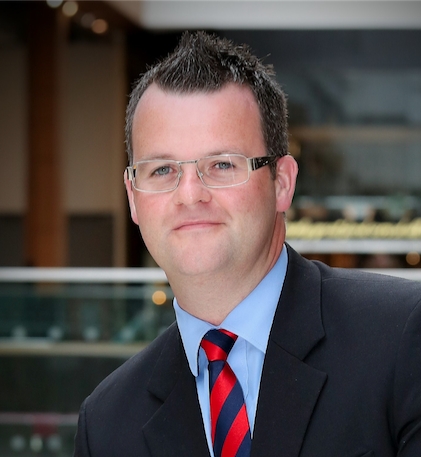
International close protection: Thinking outside the box
By George Foster
Features Expert Advice Opinion bodyguard close protection security guardFrom an outsider's perspective, in order to become an International Close Protection Operative it should be pretty straight forward, right? They just have to be big, no-necked, muscle-bound and be able to jostle their way through the swathes of people in a crowd with their Principal, yes?
 George Foster
George Foster Sure, whilst the aforementioned ‘man-mountain’ serves a purpose for many celebrities around the world, in truth, short of crowd control, they have many limitations when it comes to this international specialty.
The seasoned and experienced out there will agree, there are a wealth of considerations to take into account way before you even commence the physical aspect of being a Close Protection Operative (CPO), or a Bodyguard. The physical aspect of the job is around five per cent — the other 95 per cent is thinking outside the box.
The idea of being a CPO appeals to many because they have illusions of grandeur. They believe that the glitz and glamour surrounding the character of Frank Farmer (from the motion picture “The Bodyguard”) is very much in keeping with CPOs around the world today. While that may add to the attraction and romance, it’s a far cry from the real world.
While there are many instances that we have to very much think on our feet, usually, if the Principal is serious about their protection, the CPO or Close Protection Team (CPT) will have carried out extensive planning prior to every move.
An example of base-level planning, would include:
- In-country Risk Analysis, Assessment and Reports – Where is the Principal going? What risks does that country present to the Principal? Applicable Embassy information? Required immunisation?
- Location Reconnaissance – Where is the Principal staying? Where are they visiting? Where might they be eating or socialising?
- Route Reconnaissance – Is there more than one way to each location or serial? Are there hospitals nearby? Are there Police or Military bases nearby?
- Technical Surveillance Counter Measures Sweeps (TSCM) – Has the Principal’s place of residence and vehicle been checked for surveillance and bugging equipment? Has there been an operative/s left in situe to ensure that checked and sterile areas remain that way?
- Rigorous Vehicle Checks – Is the vehicle suitable for its intended purpose? Is it mechanically sound and does it have supporting documentation to back this up? Is there a need for more than one vehicle?
- First Aid Equipment Checks – Do you have the correct equipment for the job? Is the equipment in-date and do the batteries need changing?
- Radio & Communication Checks – Is there a reception for cell/mobile phones? Might there be a requirement for a dual SIM phone? Do radios have any vulnerable areas for poor communication? Are there spare batteries and chargers? Is there a requirement for a Sat-Phone?
- Maps and Navigation – Sat-Navs charged? Sat-Navs updated? Are there physical up-to-date maps available for applicable areas? Have hard copy maps been laminated?
Although this is a non-exhaustive list, what it does do is give you a taste of what you don’t actually see. The whole idea of ‘thinking outside the box’ is to provoke thought and to ensure you leave no stone unturned. There are no second chances in this specialty, which is why it’s of paramount importance that we don’t just have a plan A, B and C but in fact, one running from A, right through to Z.
George R. Foster, is the Group Managing Director of U.K.-based company, Intelligent Protection International Limited.
Print this page
Advertisement
- Indigenous man says he’s sick of being followed around at Giant Tiger in Regina
- National security bill will help combat homegrown extremism: Goodale
Leave a Reply